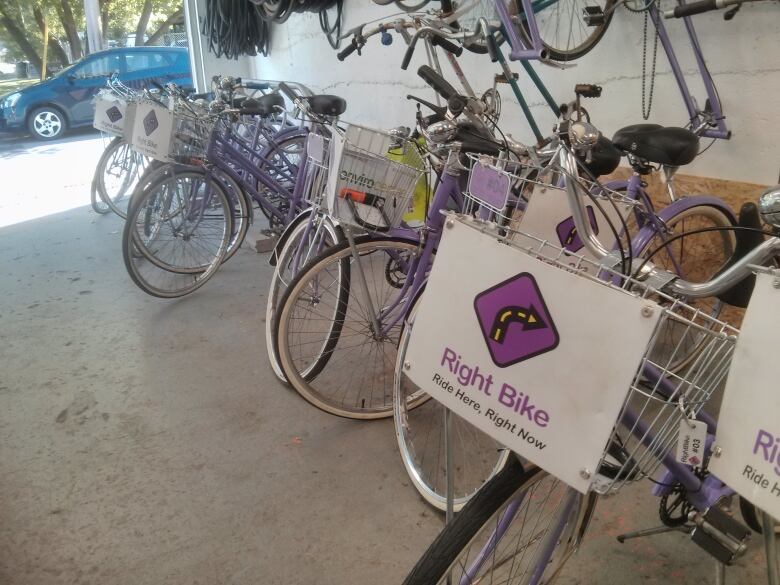Bixi struggles raise concerns about Ottawa bike share's future
NCC won't say if it's losing money, how much interest they've got
The National Capital Commission won't say if Ottawa-Gatineau's Bixi program is losing money, but said it still intends to seek out prospective buyers for the bicycle share program next year.
Montreal Auditor General Jacques Bergeron said Monday he was doubtful Bixi's Montreal and Toronto programs were financially feasible in the long term.
The news came in a letter addressed to the president of Public Bike System Company, known in French as the Socitde vlos en libre-service, or SVLS.
In the letter dated Sept. 11, Bergeron said the evidence he saw while compiling his annual report on Bixi's operations led him to believe SVLS and Bixi Toronto were in serious trouble.
However, the Ottawa-Gatineau system is significantly different from Montreal's.
While Montreal has over 5,050 bikes in its Bixi system, Ottawa-Gatineau has just 250 bikes available throughout the capital region.
The NCC said it has put out a request for expressions of interest to gauge the market for the bike share program, with the intention of putting out a request for proposals sometime next year.
But it says it is committed to running the bike-share stations again next year.
In a written statement the NCC wouldn't say how many parties have come forward to express interest in taking on the Bixiprogram.
The NCC owns the program's infrastructure but the system will continue to be run by French company Socitde vlos en libre-service, or SVLS in 2014.
Bike share profit margins are generally tight
The news of Bixi's financial troubles in other cities is not a surprise to some members of Ottawa's cycling community, who suggest the bike share program is too expensive to operate in the capital region even at a small scale.
Don Palmer, the executive director of the Causeway Work Centre that runs a non-profit, bike share program called "Right Bike", says bike shares in general don't make much money.
There's no real profit in that, unless your scale is enormous- Don Palmer, Causeway Work Centre
"There's no real profit in that, unless your scale is enormous, like some of the European bike share programs of even Montreal," said Palmer.
Alex Devries of Citizens for Safe Cycling said the NCC has focused on attracting tourist dollars to fulfill their mandate
He says the BIXI program should have been developed with transportation in mind and that stands should have been placed "where people live, not just beside museums".
Expenses getting in the way
Palmer agrees the focus was narrow but believes BIXI's expensive structure is the biggest obstacle to success.

"I know it's a complex system and I know it's an expensive system" said Palmer.
"Our model of bike share program is really what you'd call a 'community share program.'"
Shane Norris, who helped developed the structure for Right Bike program, said they get many of their parts second-hand, so the biggest cost is labour.
He said he still would like BIXI to succeed.
"Is there room for both projects, of course. We're a totally different thing"













_(720p).jpg)


 OFFICIAL HD MUSIC VIDEO.jpg)
.jpg)



























































































